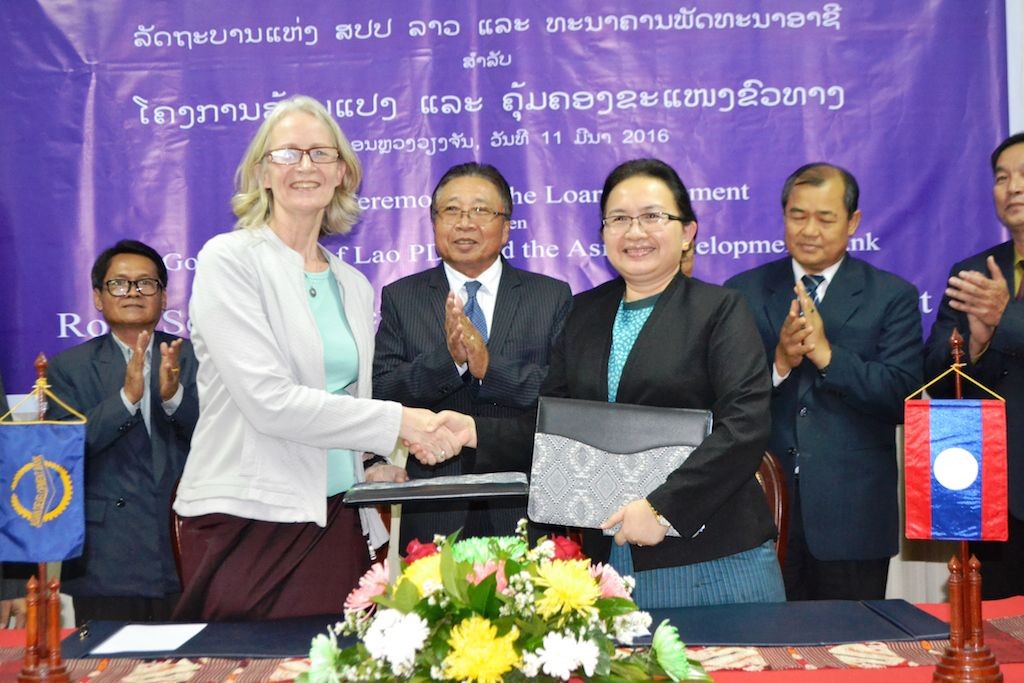
16 Mar, 2016
ADB US$27 mln loan to upgrade roads in Laos
VIENTIANE, 14 March 2016, (ADB News Release) – The Asian Development Bank (ADB) and the Government of the Lao People’s Democratic Republic (Lao PDR) have signed an agreement for a $27 million loan to support road asset management and maintain over 300 kilometers of national and local roads in the provinces of Attapu, Salavan and Xekong.
“The country’s road networks have grown significantly in recent years but an even faster rise in vehicle numbers and a lack of proper maintenance have seen the quality of surfaces deteriorate particularly in less populated, rural areas,” said Kang Hang Leung, Finance Specialist in ADB’s Southeast Asia Department. “This assistance will raise both the quality of roads, and just as importantly strengthen the management and maintenance of the network, resulting in year-round access to markets and services in provincial townships for the rural populations.”
 Officials at the loan signing ceremony |
Roads are the critical arteries for transport in the Lao PDR, accounting for the most passenger and freight movements around the country. However inadequate maintenance, and funding gaps, in tandem with the boom in vehicle use, have seen road conditions in some areas deteriorate markedly, resulting in frequent closures and restricted access to markets and services for remote communities.
ADB’s loan from its concessional resources will be used to strengthen the capacity of the Ministry of Public Works and Transport for carrying out road asset management. The loan will also be used to rehabilitate and maintain 166 km of roads in Attapu; 84 km in Salavan; and 77 km in Xekong. The loan agreement was signed on 11 March in Vientiane.
The project, which includes Lao PDR counterpart support equivalent to $2.9 million, has been designed in close collaboration with the government and other development partners engaged in road network improvements to harmonize assistance and avoid duplication of resources.
ADB, based in Manila, is dedicated to reducing poverty in Asia and the Pacific through inclusive economic growth, environmentally sustainable growth, and regional integration. Established in 1966, it is owned by 67 members – 48 from the region.



Liked this article? Share it!